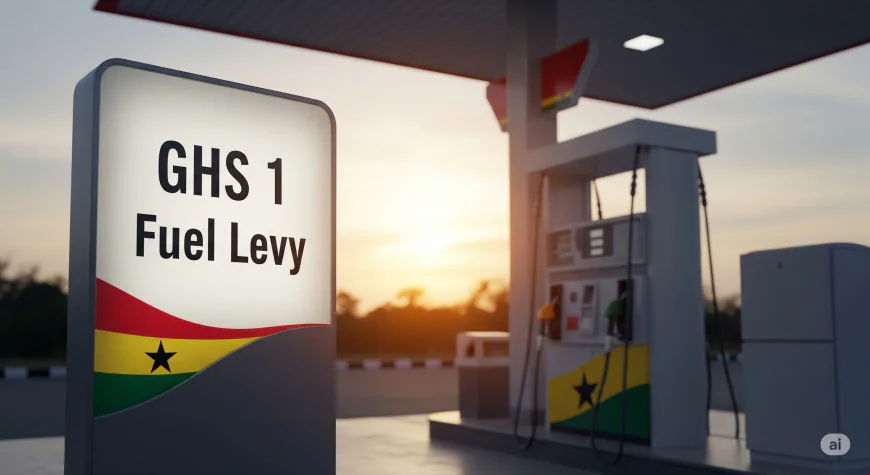All You Need to Know About Ghana’s New Fuel Levy: Critics Call It the “D-Levy”
Understand Ghana’s GH¢1 fuel levy, introduced to support the energy sector. Learn why critics link it to the repealed E-Levy and call it the “D-Levy.”

The Ghanaian government has introduced a new tax policy dubbed the Fuel Levy, a GH¢1.00 charge on every litre of petroleum product purchased. While the government frames this as a stabilizing intervention, critics from the opposition New Patriotic Party (NPP) are calling it the "D-Levy", short for "Dumsor Levy", a stinging reminder of past power crises and the cost burden on citizens.
Why the Fuel Levy Was Introduced
The Fuel Levy was tabled by the Mahama-led administration in Parliament as part of a broader legislative package to rescue Ghana’s energy sector. According to Energy Minister John Jinapor, the levy is projected to raise between GH¢5 billion and GH¢6 billion, mainly to procure liquid fuel for power generation and service legacy debts.
“The GH¢1.00 levy will raise about 60% of what we need for liquid fuel procurement,” Jinapor noted. “Even then, the Finance Ministry must bridge the remaining funding gap.”
The government warns that without immediate funding, the energy sector could face serious insolvency, risking power disruptions and national grid instability.
How Will the Money Be Used?
-
Procurement of liquid fuel for thermal power plants
-
Settling debts owed to Independent Power Producers (IPPs)
-
Strengthening infrastructure and operational capacity
-
Supporting ongoing sector reforms and payment plans
The Energy Ministry has also begun renegotiating payment terms with IPPs and working on long-term strategies to restructure sector inefficiencies.
Political and Public Reactions
The NPP minority in Parliament has fiercely opposed the levy, arguing it mirrors the 1% Electronic Levy (E-Levy) that was repealed in the 2025 financial budget following massive public backlash.
“This is simply the E-Levy in disguise,” said an NPP MP. “It’s the same burden, just renamed and redirected.”
Critics argue that the National Democratic Congress (NDC) campaigned against the E-Levy when in opposition, only to introduce a similar tax upon gaining power—hence the nickname "D-Levy."
Civil Society Critique
Benjamin Nsiah, Executive Director of the Centre for Environment and Sustainable Energy, described the fuel levy as "regressive, uncreative, and unfair."
“We’ve seen this before with ESLA and other levies. These taxes fail to address the core structural inefficiencies in the energy sector,” he argued.
Nsiah emphasized that the problem lies not in revenue generation, but in poor fiscal management and lack of transparency on how previous levies were used.
What’s Next?
The bill is expected to pass in Parliament given the NDC majority, but the opposition has vowed to fight it both legislatively and through public campaigns. With fuel prices already high, the added burden is likely to face resistance from:
-
Transport unions
-
Businesses
-
Ordinary consumers
-
Civil society organizations
Public demonstrations and industry disruptions may follow if the levy is seen as exacerbating economic hardship.
Conclusion
While the government argues the Fuel Levy is necessary to rescue Ghana’s ailing energy sector, critics remain unconvinced. Whether branded as a strategic move or the “D-Levy”, the tax is sure to be a hot topic in the months to come—especially as Ghanaians continue to grapple with high fuel prices and unstable electricity supply.


